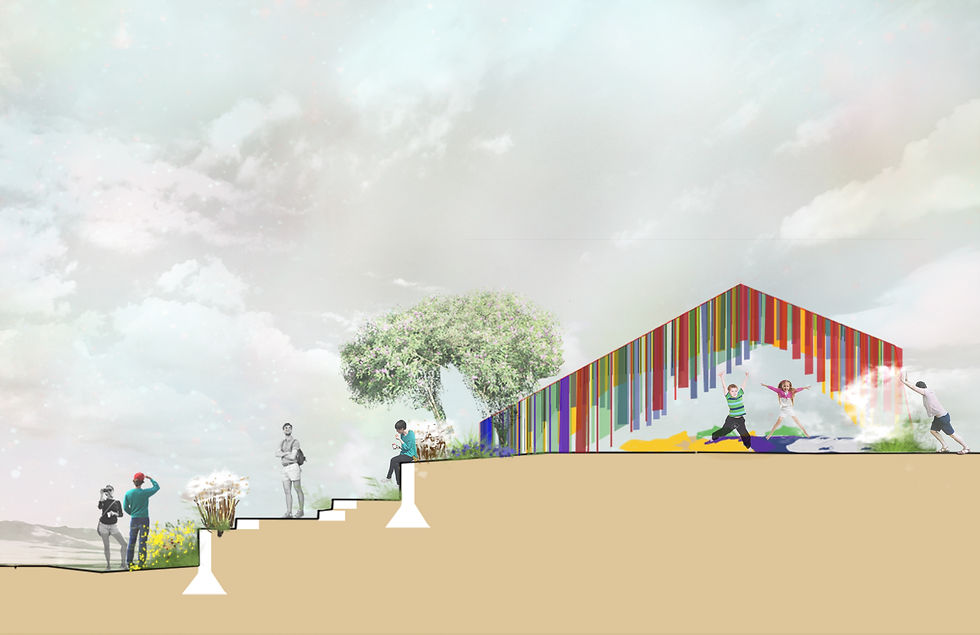EXPO ANTALYA 2016
Turkey, 3rd International Price

The ‘Pamuk Kale’ project offers the experiment of a terraced garden evoking the agriculture hillside of the Beycik region and the UNESCO natural landscape of Pamukkale.
The terraces are planted with varieties of cotton and Mediterranean tincture species and illustrate the cotton cycle -from its culture to the craft industry-, and raise awareness of environmental issues. Surrounded by a thick white fog, a fortress made of colourful canvases is erected at the top. Inside, an alcove with giant cotton cushions invites visitors to ‘dive into the cloud’.
EVOCATION
Pamukkale (Denizli)
The combination of the mist, relief, and cotton of the limestone terraces of Pamukkale is to us a poetic invitation to dream. The project is a tribute to this unique natural monument of the world.
Beyci
This landscape/relief also reflects the traditional agriculture in terraces implanted in the Beyci region. Unfortunately, due to intensive agriculture, those designs coming from a long legacy of peasant expertise in dealing with the hydrological and topographical characteristics of the region are under threat. The project is a living salute to the territory’s workers. It is also a work of the future given its ability to optimize resources through water efficiency, job creation, use of local plants and craft, all contributing to enhance the landscape appeal.
Cotton
From the seeds to the thread and tint Cotton has been in use for millenniums and Turkey is the main European producer. Its expertise in weaving and dyeing the fibres goes back to the Antiquity. Belonging to the Malvacea family, cotton (Gossypium) comes in hundred species of blooms and delicate foliage. The reproductive cycle of this plant makes it attractive all year around. Its intensive culture requires a lot of water and fertilizers are greatly applied, leading to huge environmental issues. That said, solutions can be found to make its culture sustainable. They require evolving practices, selection of hardy species, good water management, and organic farming. The project emphasizes the role of the diversity of the genus Gossypium and Mediterranean tincture plants in the feasibility of including textile agriculture in a global and sustainable process.








